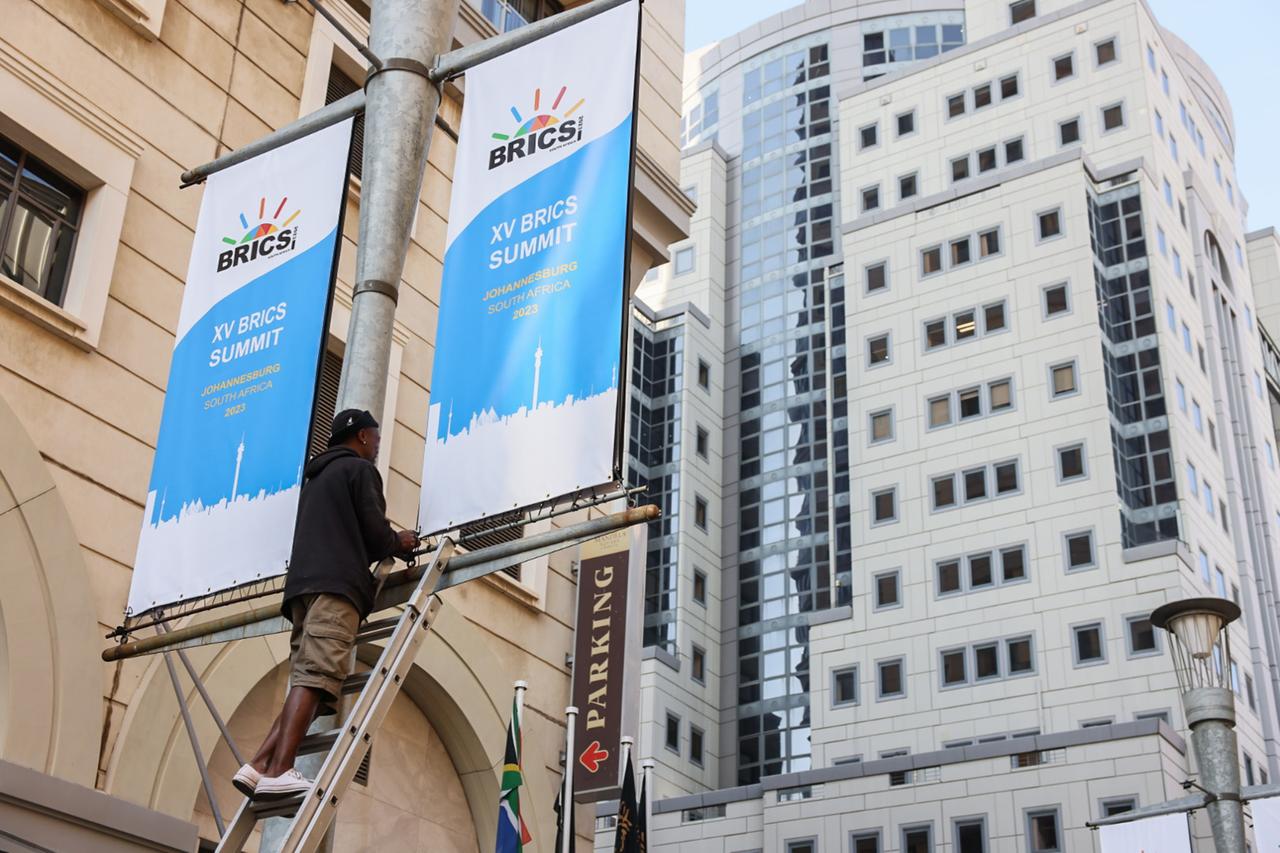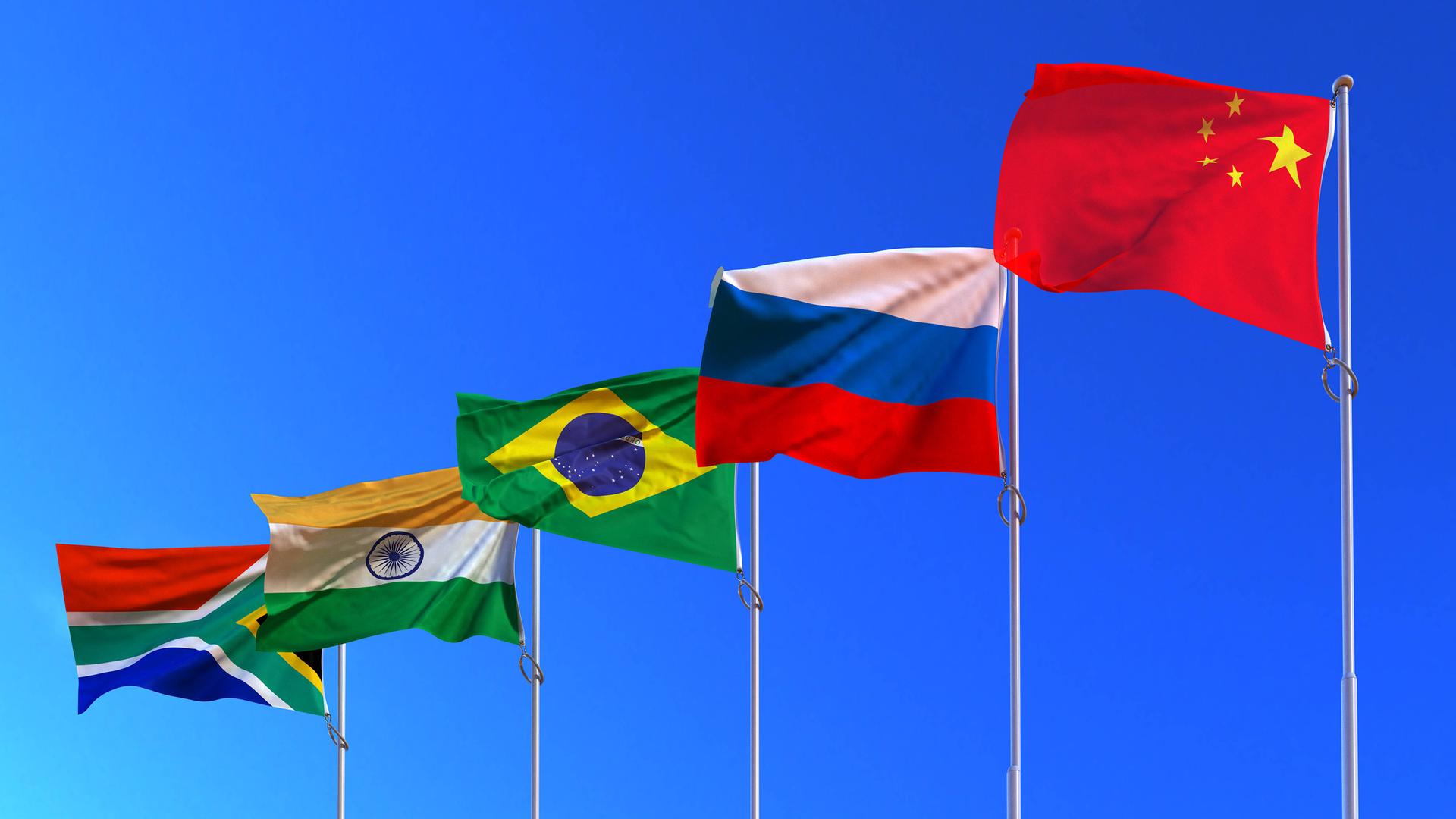The BRICS group of countries – Brazil, Russia, India, China and South Africa – is struggling for greater power. Because the international structure is increasingly changing and a new multipolar world order is being formed, its importance is increasing. The six new members are intended to further strengthen the importance of the association. However, what remains unclear is whether the eleven states will be able to reach agreement on global issues.
The abbreviation BRICS is an abbreviation of the first letters of the members of the informal group of countries: Brazil, Russia, India, China and South Africa. This abbreviation was created in response to the “G” group that already existed in rich industrial countries (G7, G8, G20). Since 2009 there have been regular summit meetings of developing countries, which – except Russia – are also referred to as developing countries.
Politically, there are many things that differentiate the members of a confederation of states: some are governed democratically, some are not. The five countries also differ greatly in terms of size, economic strength, and foreign policy role. But they are united by the desire to create a multipolar world in which the West must share its power. At the last BRICS summit in August 2023, South African President Cyril Ramaphosa spoke about the need for “fundamental reform” in the world order.
The aim of this alliance of countries is to form a counterweight to Western domination and forums of economically strong countries such as the G7. The BRICS countries also want to reduce their dependence on the US dollar as a global reserve currency and are therefore reviewing the extent to which the alliance can use local currencies and alternative payment systems.
It's about influence in a changing world. The common goal of the BRICS countries is also fundamental reform of the UN, stressed South Africa's special BRICS ambassador, Anil Sooklal. For years, South Africa has also demanded a permanent seat on the World Security Council as the African continent's representative. India and Brazil are also seeking seats on the council, including veto rights.
Powerhouse China dominates the BRICS group – simply because China's economy is larger than the economies of Brazil, Russia, India and South Africa combined. China is an important economic and trade partner for all other BRICS countries.
However, some BRICS members view China's superiority critically; India does not want to bow to Beijing's efforts to achieve global political supremacy. The fact that China could use BRICS expansion to extend its dominance within the alliance makes India and Brazil nervous, said South African political scientist Sanusha Naidu.
In contrast, the other three member states, Brazil, India and South Africa, were initially very cautious about the enlargement because they saw it as endangering their own status – “not least because there were several economically strong players among the potential members.” ” wrote study authors Günther Maihold and Melanie Müller.
At its summit in Johannesburg, South Africa, in August 2023, the BRICS group decided to accept six new members: Saudi Arabia, Iran, the United Arab Emirates, Argentina, Egypt, and Ethiopia will join the group on January 1, 2024.

With the addition of these six countries, the alliance will double in size and increase its geopolitical and economic influence. According to Brazilian President Luiz Inácio Lula da Silva, the new 911 group will generate up to 37 percent of global gross domestic product and represent 46 percent of the world's population.
Apart from the six new members, many other countries could join the BRICS group in the future. According to South African Foreign Minister Naledi Pandor, around 40 countries have expressed interest in becoming members, 23 of which are genuine. These include Algeria, Kuwait, Bangladesh, Venezuela and Thailand.
For Berlin-based political scientist Günther Maihold, BRICS is a “heterogeneous association” with the central actor China, to which other countries do not necessarily subordinate themselves. Everyone agrees that new rules will be established in international financial, trade and economic policies. We can no longer assume that the Western model of order will be generally accepted, Maihold said – and the expansion is also a sign of new self-confidence in the BRICS countries. But overall, BRICS is a loose association of countries and does not have the same understanding of security policy.
Iran's inclusion in the BRICS group in particular is unlikely to be well received in the US. Nevertheless, America reacted cautiously and diplomatically to BRICS expansion. To maintain global peace and security, the United States will continue to work with its partners and allies “in bilateral, regional and multilateral forums,” the State Department said. Each country can freely choose its cooperation partners. German Foreign Minister Annalena Baerbock (Green Party) also made similar comments.
There are different views regarding BRICS expansion among experts. “The BRICS countries still have no political guidelines. The alliance's expansion plans, including four clearly authoritarian countries, confirm that the country's leaders lack strategic guidance,” said Karl-Heinz Paqué, CEO of the Friedrich Naumann Foundation. “Their only concern is to attract as many followers as possible to a party that is considered anti-Western.” After expansion, autocratically ruled countries will become the majority in the alliance, Paqué warned.
Berlin political scientist Günther Maihold is more relaxed. The West must now adapt to “completely new ideas about how the world order should work”. He called for thinking about a new foreign policy: “I think we have a problem with our values-based foreign policy. We can hardly find partners for value partnerships anymore. “It would be difficult even in your own camp if you think about Israel,” Maihold said. Therefore, foreign policy should be “not too normative” and focus on world goals, but should determine the path to these goals.
“One thing is clear: we can no longer dictate our conditions and standards,” said Caroline Kanter, deputy head of the Department of European and International Cooperation at the Konrad Adenauer Foundation. “We are expected to make an offer to be considered an attractive partner in the future,” Kanter said. BRICS expansion is “testament to the fact that the world is restructuring and a large number of countries are unwilling to submit to systemic conflict.” Germany and Europe should draw conclusions about their international actions and explore how a pragmatic approach can be taken.
Leonie March, ahe, jewel, dpa, AFP, rtr

“Subtly charming web junkie. Unapologetic bacon lover. Introvert. Typical foodaholic. Twitter specialist. Professional travel fanatic.”







